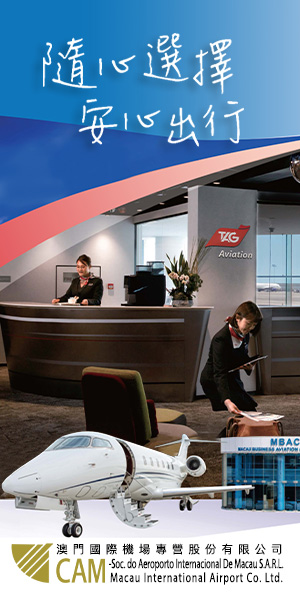The cornerstone of a private aircraft transaction is the Aircraft Purchase Agreement. The Aircraft Purchase Agreement (also called the Aircraft Sales Agreement) is a detailed contract signed by the Seller and Buyer establishing the deal terms and creating a timeline for moving the transaction forward to completion. Most private aircraft transactions succeed if the Seller and Buyer can negotiate and sign the Aircraft Purchase Agreement.
The Aircraft Purchase Agreement – Structure
The Aircraft Purchase Agreement (APA) is structured to cover the following ten deal terms: (i) purchase price, (ii) security deposit, (iii) the Buyer’s exclusive right to purchase the aircraft, (iv) the exact aircraft, engines, equipment and documents being sold, (v) the aircraft’s assumed condition at closing, (vi) the pre-purchase inspection, (vii) Seller’s rectification of aircraft condition discrepancies, (viii) aircraft delivery location, (ix) closing deadline, and (x) remedies for breach of contract.
Negotiating Private Aircraft Purchase Agreements
In a normal Aircraft Purchase Agreement negotiation, (i) Buyer prepares a draft APA, and sends it to Seller in a format that allows the Seller to provide suggested edits, (ii) Seller proposes changes to the draft APA with a redline, (iii) the process repeats until only a few issues remain, (iv) the parties talk and resolve outstanding disagreements, and (v) a final APA is circulated and signed. A private aircraft Seller and Buyer can successfully negotiate the APA deal terms, and execute the APA, by being mindful of the following during the negotiating process:
- Establish Trust. Aircraft transactions are often between parties that have no prior dealings, so there is no established trust between them. Aircraft transactions are rarely face-to-face, which makes it difficult to develop personal comfort with the other party. Written (email) communications and communications through intermediaries need to be carefully worded to avoid unintentional negative messages. Each party wants confidence that the other party will fulfill its commitments. To establish trust, each party should meet its deadlines, be responsive to the other party (without unnecessary delay), and act in a manner that appears logical and predictable to the other party. Working with qualified advisors (i.e., brokers, lawyers) that know each other can also help establish trust between the parties. These advisors must be focused on continuous action, and overcoming small hurdles and disagreements that inevitably arise.
- The Decision-Maker Should be Involved in the APA Negotiations. The individuals representing the Seller and Buyer during the APA negotiations should be fully authorized to negotiate the APA. Negotiations have failed when the purported Decision-Maker’s agreements over APA terms are suddenly overruled and reversed by someone not previously involved in the transaction.
- New Aircraft Sellers and Used Aircraft Sellers are Different. New aircraft Sellers, which are aircraft manufacturers, are almost infinitely patient. New aircraft Sellers can offer warranties and post-purchase support, have global staff, and conduct business face-to-face. Used aircraft Sellers are none of these things. When negotiating an APA with a used aircraft Seller, the Seller will expect the Buyer to be very responsive (same-day or next-day), negotiations will be indirect (by phone and email), and once the transaction is closed, the Seller will provide little or no post-closing support. When a used aircraft owner is trying to sell its aircraft, the Seller’s ability to use the aircraft becomes limited, and the Seller is carrying aircraft costs (crew, hangar, financing and insurance) it no longer wants. The Buyer of a used aircraft should not draw out negotiations with a used aircraft Seller. The performance deadlines in the APA are to protect the Seller from a delay, and will usually be strictly enforced.
- Send the Security Deposit to the Escrow Agent Timely. APAs usually require that the Buyer make cash security deposit to an escrow agent, which the Seller may take if the Buyer breaches the APA. The security deposit is normally made by the Buyer after a Letter of Intent is signed by the parties, but before the APA is negotiated and signed. The deposit is evidence of the Buyer’s ability and willingness to purchase an aircraft and it gives the Seller security to justify taking the aircraft off the market. The Buyer’s remittance of the deposit to the escrow agent before the APA is signed is a strong sign that the Buyer is committed to purchasing the aircraft.
- Deal with Important Issues Early. Important issues should not appear as the parties discuss the 3rd draft of the Aircraft Purchase Agreement.
- Communicate Frequently and Quickly. Delays in communication between Buyer and Seller are normal, due to the complexities of aircraft transaction negotiations. Notwithstanding, do not ignore the other party, and quickly respond to their communications, even if there is nothing substantive to say, because the other party is anxious and may assume the worst when there is no communication or slow responses.
- Negotiate the APA Quickly. Delays in the aircraft sale cost the Seller money every day, because of the daily costs of owning an aircraft. If the Buyer moves too slowly in the APA negotiations, the Seller is under pressure to terminate negotiations and find another purchaser.
- Don’t Revisit Issues. Most parties in an aircraft transaction expect that, once an issue has been discussed and resolved, that such issue will not return later for further discussion. Attempts to renegotiate deal terms are considered acts of “bad faith.”
- Western-Centric Agreements. Aircraft Purchase Agreements are usually in English, reference U.S. currency, and are governed by U.S. or U.K. law. Engage the necessary legal expertise you will need to understand the APA.
- Understand Legal Remedies. It is a myth that parties from the United States and Western countries are very litigious and often sue over business transaction disputes. Litigation over aircraft transactions is rare, particularly when the parties are from different countries, due to the high costs of lawsuits. Therefore, when negotiating an APA, do not be overly concerned about litigation for a failed aircraft purchase transaction. Most likely, the parties will limit their dispute to the security deposit. Most litigation is the result of ambiguities in an APA, and the solution for that is to make the APA as detailed and clear as possible.
- Rely on Qualified Advisors. Qualified aircraft brokers and attorneys are invaluable to the process of negotiating an APA. The broker provides technical knowledge and familiarity with the aircraft, its condition, and pricing. During the negotiations, the lawyer will make sure his client’s goals are reflected in the APA or seek alternatives, construct compromises to resolve disagreements, and ensure compliance with applicable laws.
- Revise but do not Rewrite the APA. If the non-drafting party rewrites the APA so that the redlined APA becomes unreadable, there is a negotiating problem. This can derail a transaction at the outset. Avoid detail changes that do not affect the meaning of the document. Deleting and replacing entire sections with different boilerplate clauses will create delay and frustration. Certainly, when a draft APA missing an important term or is otherwise materially inadequate, the APA should be revised. But, before redrafting the entire APA, consider what issues are really important and talk to the other party.
Conclusion
Negotiating Aircraft Purchase Agreements can be challenging, but by following these guidelines, the negotiating parties greatly increase their chances to successfully enter into an aircraft purchase transaction.

